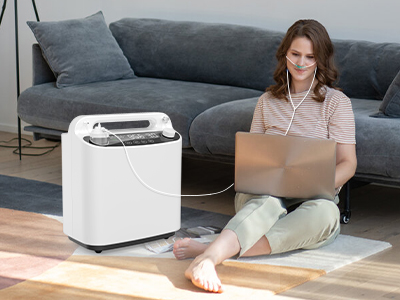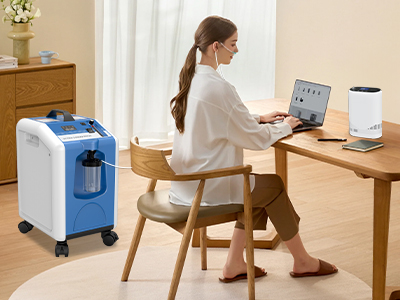08 Mar 2024
Oxygen concentrators are medical devices designed to deliver oxygen therapy to individuals with respiratory conditions by extracting oxygen from ambient air.
The effectiveness of oxygen therapy depends on the concentration and flow rate of oxygen delivered, with higher levels often required for certain clinical applications.

Understanding Oxygen Concentrator Levels
A. Oxygen Flow Rates
Oxygen concentrators offer various flow rate settings, representing the amount of oxygen delivered per minute, which can range from low to high levels depending on the patient's needs.
B. Oxygen Concentration Levels
The concentration of oxygen provided by an oxygen concentrator is measured in percentage terms, with higher levels indicating a greater proportion of oxygen in the delivered gas mixture.
Determining the Highest Level on an Oxygen Concentrator
A. Factors Influencing Oxygen Levels
Several factors influence the maximum achievable oxygen level on an oxygen concentrator, including the device's design, capacity, and intended clinical use.
B. Maximum Flow Rate and Concentration
The highest level on an oxygen concentrator is determined by its maximum flow rate and oxygen concentration capabilities, which are specified by the manufacturer.
Clinical Applications of High Oxygen Levels
A. Hyperbaric Oxygen Therapy
In hyperbaric oxygen therapy, which involves breathing pure oxygen in a pressurized chamber, high oxygen levels are essential for promoting tissue healing and treating various medical conditions.
B. Oxygen Therapy in Critical Care
Critical care settings often require high levels of oxygen to support patients with severe respiratory distress or acute respiratory failure, where oxygen concentrators play a crucial role in delivering precise oxygen concentrations.

Safety Considerations
A. Monitoring Oxygen Levels
Continuous monitoring of oxygen levels is essential to ensure patient safety and prevent complications associated with hypoxemia or hyperoxemia.
B. Adverse Effects of High Oxygen Concentrations
Exposure to excessively high oxygen concentrations can lead to oxygen toxicity, causing lung damage and other adverse effects, underscoring the importance of careful oxygen level regulation.
Customization and Adjustments
A. Personalized Settings
Oxygen concentrators allow for customization of settings based on individual patient requirements, ensuring that oxygen levels are tailored to specific clinical needs.
B. Importance of Healthcare Provider Guidance
Healthcare providers play a critical role in determining the appropriate oxygen level settings for patients, considering factors such as diagnosis, oxygen saturation levels, and overall respiratory status.
Technological Advancements
A. Enhanced Oxygen Delivery Systems
Advancements in oxygen concentrator technology have led to the development of more efficient and reliable systems capable of delivering precise oxygen levels with greater accuracy and consistency.
B. Intelligent Monitoring and Regulation
Modern oxygen concentrators feature intelligent monitoring and regulation capabilities, allowing for real-time adjustments to oxygen levels based on patient feedback and physiological parameters.
Conclusion
A. Ensuring Optimal Oxygen Levels
Understanding the highest level on an oxygen concentrator is essential for ensuring that patients receive the appropriate oxygen therapy needed to support respiratory function and overall health.
B. Importance of Precision in Oxygen Therapy
By providing precise oxygen levels tailored to individual patient needs, oxygen concentrators play a vital role in optimizing therapy outcomes and improving patient well-being.
Keywords: oxygen concentrator
Originally published 08 Mar 2024, updated 08 Mar 2024.